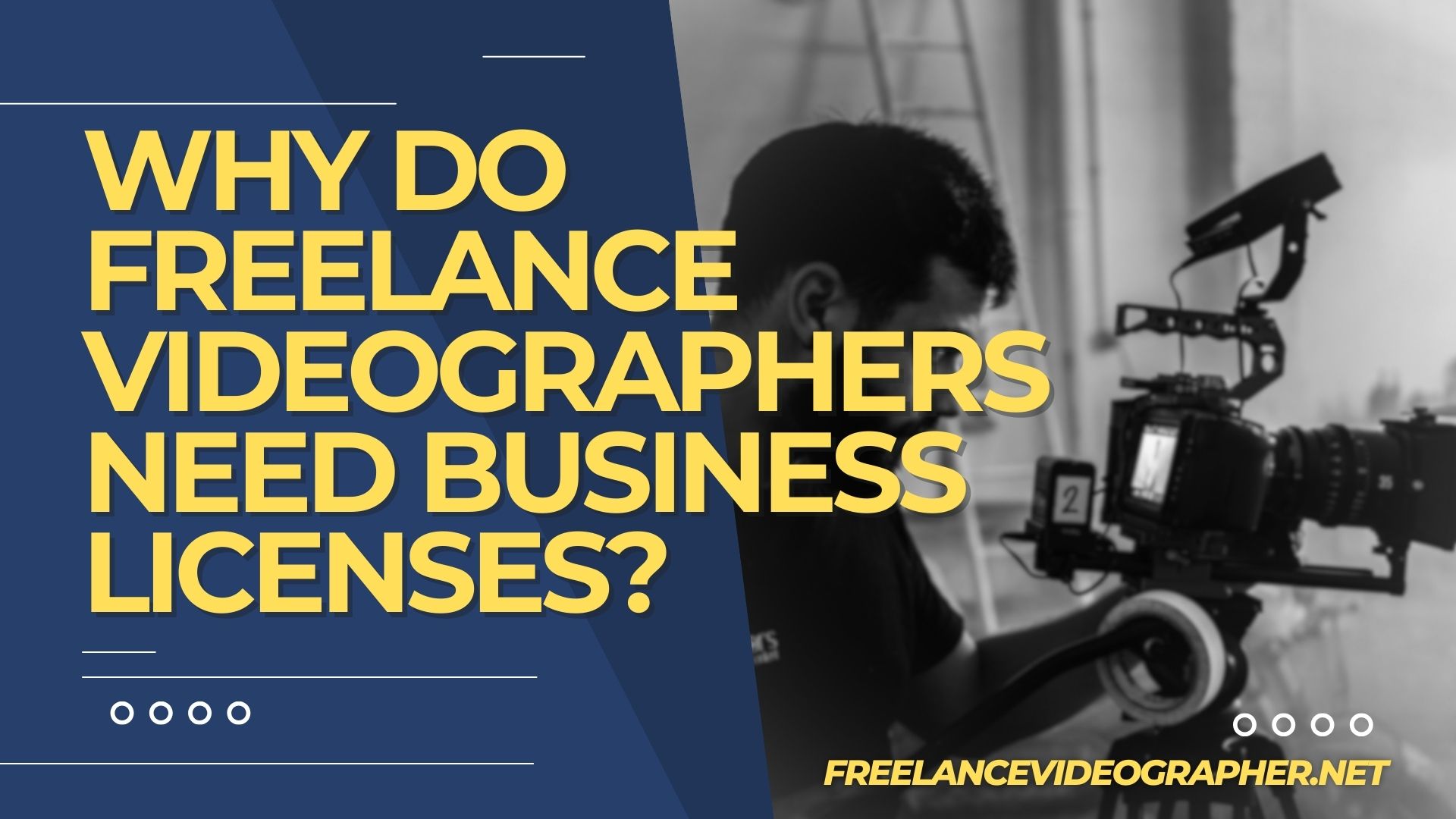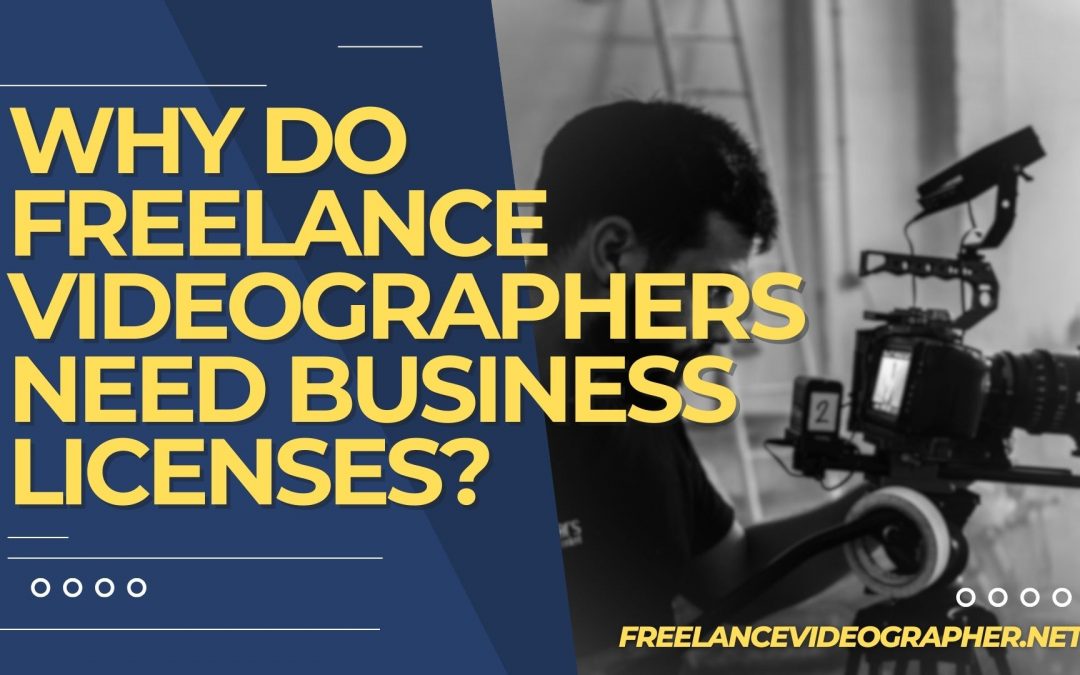As freelance videographers, we often focus on honing our craft and delivering stunning visuals, but there's a crucial aspect that is sometimes overlooked – the need for a business license. It's easy to assume that as solo operators, we can fly under the radar, but the reality is that having a business license is essential for establishing credibility and protecting our assets. But why exactly do we need one? Well, the benefits go beyond just legality, and they can significantly impact our professional standing and financial security. So, let's explore the reasons why freelance videographers need business licenses and how it can elevate our business to the next level.
Key Takeaways
- A business license for freelance videographers is important for establishing credibility and professionalism.
- It ensures compliance with local laws and regulations, protecting assets and mitigating legal consequences.
- Having a business license instills confidence in clients and helps build a solid foundation for freelance work.
- Freelance videographers have tax obligations and need to maintain thorough records, ensuring compliance with tax laws and achieving financial stability.
Freelance Videographer Business License Requirements
As freelance videographers, obtaining the necessary business licenses is imperative to legally operate within our respective jurisdictions and ensure compliance with local laws and regulations. It's not just a formality; it's a crucial step in establishing our professionalism and legitimacy. Understanding the specific business license requirements for freelance videographers is essential. It typically involves registering our business, securing liability insurance, and covering other business expenses. This process not only protects us from potential legal consequences and business shutdown but also instills confidence in our clients. By navigating the complexities of business licenses, we demonstrate our commitment to ethical and legal business practices. Therefore, researching and fulfilling these requirements is a proactive step towards building a solid foundation for our freelance work.
Legal Considerations for Freelance Videographers
Navigating the legal landscape as freelance videographers, we must proactively address the pivotal considerations that underpin the legitimacy and sustainability of our creative businesses. When it comes to legal considerations, freelance videographers need to be aware of the following:
- Liability: Understanding the legal liabilities associated with our work is crucial to safeguarding our business and personal assets.
- Photographers' Rights: Familiarizing ourselves with the legal rights related to photography and videography ensures that we operate within the boundaries of the law.
- Small Business Regulations: Adhering to small business regulations, including tax and labor laws, is essential for the smooth functioning and longevity of our freelance ventures.
Tax Obligations for Freelance Videographers
What tax obligations do freelance videographers need to fulfill to comply with local laws and regulations? As freelance videographers, we need to be aware of our tax responsibilities to ensure compliance with the law. This includes paying self-employment taxes on our income, which encompasses Social Security and Medicare taxes. Additionally, we may be required to make estimated tax payments throughout the year to cover our tax liability. Maintaining thorough records of income and expenses is crucial for accurate tax filing and potential deductions. Understanding and adhering to the specific tax laws and regulations pertaining to freelance videography is essential for financial stability and compliance. To provide a clearer understanding, let's review the tax obligations freelance videographers typically encounter:
| Tax Obligations | Description |
|---|---|
| Self-Employment Taxes | Freelance videographers are required to pay Social Security and Medicare taxes on their income. |
| Estimated Tax Payments | Videographers may need to make estimated tax payments to cover their tax liability throughout the year. |
Business Structure Options for Videographers
Understanding and fulfilling tax obligations is crucial for freelance videographers, and as we navigate the realm of business structure options, it's essential to consider the various legal and financial implications associated with each choice. When choosing a business structure, freelance videographers should consider the following options:
- Sole Proprietorship: A simple and common structure that is easy to set up and does not require extensive legal documentation.
- Limited Liability Company (LLC): Provides personal liability protection and allows for pass-through taxation, separating personal and business finances.
- S Corporation: Offers personal liability protection and certain tax advantages, with shareholders only paying income tax on their wages, not on the company's net income.
Each of these options presents different levels of legal protection and tax advantages, so it's important for freelance videographers to carefully assess their needs and goals before making a decision.
Steps to Obtain a Business License
Researching state and local requirements for business licenses is the first crucial step in the process of obtaining a business license as a freelance videographer. Understanding the specific regulations and obligations in your area is essential. Once the requirements are clear, completing the necessary application forms and paying the associated fees follows. It's important to provide all requested documentation to support the business license application. Additionally, it's vital to remember that the business license may need to be renewed periodically as per state or local regulations. Staying informed about any changes in the licensing requirements is also crucial. As freelance photographers need a business license to operate legally, being proactive and diligent in the steps to obtain a business license is imperative.
Frequently Asked Questions
Do You Need an LLC as a Freelance Photographer?
We don't need an LLC as freelance photographers, but it offers limited liability, tax advantages, and legal protection. It separates business structure from personal assets, providing peace of mind and potential financial benefits.
Do You Have to Have a Business to Do Freelance Work?
We freelance videographers need a business license for legality, tax implications, client contracts, brand identity, and networking opportunities. Operating without one can lead to legal consequences and business shutdown. It's crucial for our professional success.
Do Freelance Photographers Need a Business License California?
Freelance photographers in California need a business license to comply with license requirements, protect against tax implications, and gain legal protection. It also sets industry standards and meets client expectations for professionalism and credibility.
How Do I Start a Freelance Videography Business?
Starting a freelance videography business involves developing marketing strategies, investing in equipment, building client relations, setting a pricing structure, and creating a strong portfolio. These elements are crucial for success in the competitive videography industry.
Conclusion
In conclusion, freelance videographers need business licenses for legal legitimacy, liability protection, and financial separation. By obtaining a business license, videographers can add credibility and confidence to their professional image. It's a crucial step in ensuring compliance with local laws and regulations, and it sets the stage for success in their video ventures. So, secure your business license, stand out as a savvy and serious professional, and soar in your videography ventures!

